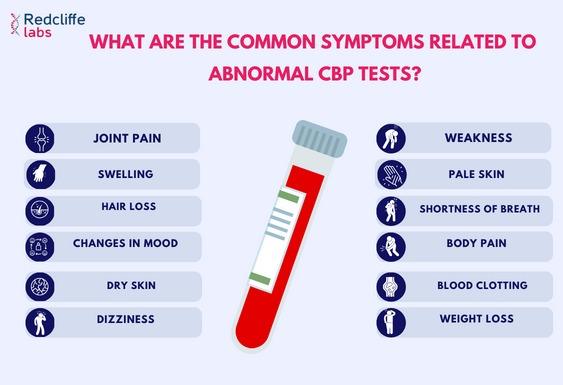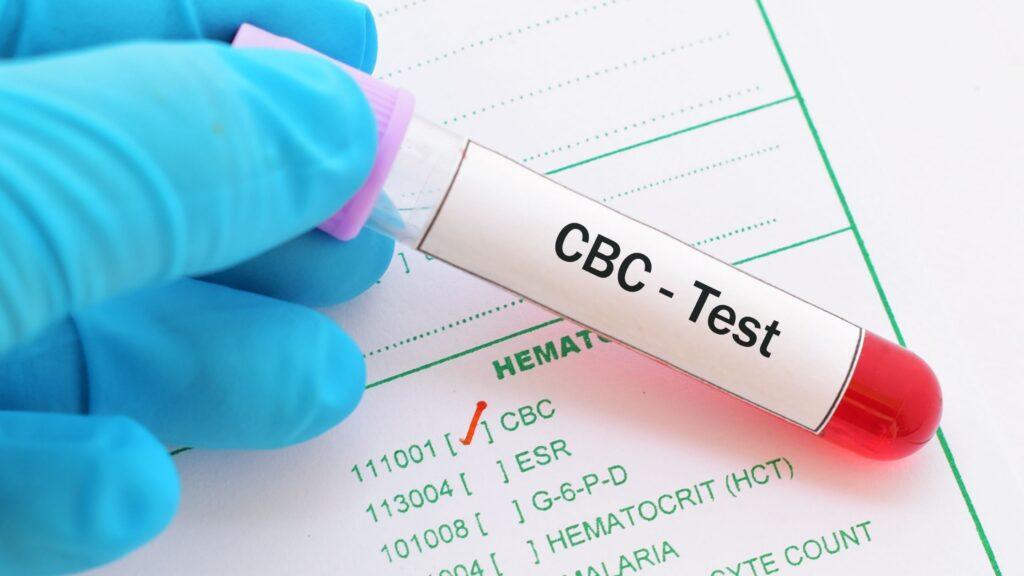Blood tests are essential diagnostic tools that help in assessing overall health and detecting various medical conditions. Among the common blood tests, CBC (Complete Blood Count) and CBP (Complete Blood Picture) are often used interchangeably, but they have subtle differences in terms of purpose, findings, accuracy, and scope.
While both tests provide crucial information about the composition of blood, it is important to understand their distinctions to ensure proper diagnosis and treatment. So let’s get into the CBC VS CBP Test comparison.

What is a CBC Test?
The Complete Blood Count (CBC) test is a standard blood test used to measure the levels of different components in the blood. It helps in diagnosing infections, anemia, clotting disorders, and immune system-related diseases. The CBC test evaluates:
- Red Blood Cells (RBCs): Assesses oxygen-carrying capacity and anemia.
- White Blood Cells (WBCs): Measures immune function and infection response.
- Hemoglobin (Hb): Determines the oxygen-carrying protein in red blood cells.
- Hematocrit (Hct): Evaluates the proportion of RBCs in blood volume.
- Platelet Count: Analyzes clotting ability and bleeding disorders.
- Mean Corpuscular Volume (MCV): Determines the average size of RBCs, indicating anemia types.
A CBC test is typically recommended for general health check-ups, monitoring chronic diseases, pre-surgical evaluations, and detecting infections.
What is a CBP Test?
The Complete Blood Picture (CBP) test is an extended form of CBC that provides a more detailed analysis of blood components. It includes all the parameters of a CBC test but with additional information such as:
- Differential Leukocyte Count (DLC): Breaks down WBCs into their subtypes (neutrophils, lymphocytes, eosinophils, basophils, monocytes) for a more precise infection diagnosis.
- Peripheral Blood Smear: Examines the shape, size, and morphology of blood cells under a microscope.
- Reticulocyte Count: Assesses the production of new RBCs, useful in anemia evaluation.
- Erythrocyte Sedimentation Rate (ESR): Helps detect inflammation and chronic infections.
A CBP test is often recommended when doctors need a deeper analysis beyond a CBC, such as in cases of leukemia, bone marrow disorders, severe infections, or unexplained blood abnormalities.
CBC VS CBP Test
| Feature | CBC (Complete Blood Count) | CBP (Complete Blood Picture) |
| Purpose | Basic evaluation of blood health | In-depth analysis of blood components |
| Findings | RBC, WBC, hemoglobin, hematocrit, platelets, MCV | CBC findings + DLC, ESR, peripheral smear, reticulocyte count |
| Scope | General screening, anemia detection, infection monitoring | More detailed blood study for complex disorders |
| WBC Analysis | Total WBC count only | Differential WBC count (breakdown of WBC types) |
| Red Blood Cell Examination | Counts and basic size evaluation | Detailed RBC morphology and reticulocyte count |
| Microscopic Examination | Not included | Includes peripheral blood smear for abnormalities |
| Inflammation Detection | Not directly measured | Includes ESR to assess inflammation |
| Accuracy | Sufficient for routine blood analysis | Higher accuracy in identifying blood disorders |
| Cost | More affordable | Slightly expensive due to additional tests |
| Common Use | General health check-ups, infections, anemia | Blood disorders, leukemia, detailed infections assessment |
Which Test Should You Choose?
- Opt for a CBC test if you need a routine blood check-up or a quick assessment of anemia, infections, or clotting disorders.
- Opt for a CBP test if your doctor suspects a more serious blood condition, such as leukemia, bone marrow disorders, or prolonged infections that require a detailed analysis.
- Your doctor will recommend the appropriate test based on your symptoms, medical history, and clinical requirements.
Cost of CBC and CBP Tests
The cost of these tests may vary based on the location, diagnostic center, and additional parameters included:
- CBC Test Cost: Ranges between INR 300 – 800.
- CBP Test Cost: Ranges between INR 800 – 2000, depending on the laboratory and extent of analysis.
- Health insurance may cover the cost if prescribed for medical diagnosis.
Patient Guide: Preparing for the Test
- Fasting Requirement: Neither CBC nor CBP tests usually require fasting unless combined with other tests.
- Hydration: Drinking water before the test ensures better blood flow and easier sample collection.
- Medications: Inform the doctor about any medications, as some drugs may affect blood counts.
- Procedure: A small blood sample is drawn from the vein, usually from the arm, in a quick and painless process.
- Results: CBC results are typically available within a few hours, while CBP may take 24-48 hours, depending on the complexity of analysis.

Frequently Asked Questions
How is a CBC test different from a CBP test?
A CBC test provides a basic blood analysis, whereas a CBP test offers a detailed breakdown, including differential WBC count and a microscopic examination of blood cells.
Can both tests detect infections?
Yes, both tests help in diagnosing infections, but CBP is more detailed, identifying specific types of WBCs involved in infections and immune responses.
Is fasting required before a CBC or CBP test?
No, fasting is not required unless advised by the doctor when combined with other tests like blood sugar or cholesterol.

How long does it take to get CBC and CBP test results?
CBC results are usually available within a few hours, whereas CBP results may take up to 48 hours due to additional microscopic evaluations.
Which test is more expensive: CBC or CBP?
CBP is more expensive as it includes detailed blood analysis, while CBC is more affordable and commonly used for routine health checks.
Takeaway
Both CBC and CBP tests serve critical roles in medical diagnostics, but their level of detail and purpose differ. CBC is a fundamental test for general health evaluation, whereas CBP provides an in-depth analysis for detecting serious blood disorders.
Choosing the right test depends on your health condition, doctor’s recommendation, and the level of detail required in diagnosis. Always consult a healthcare professional before opting for any test to ensure accurate diagnosis and timely treatment.
